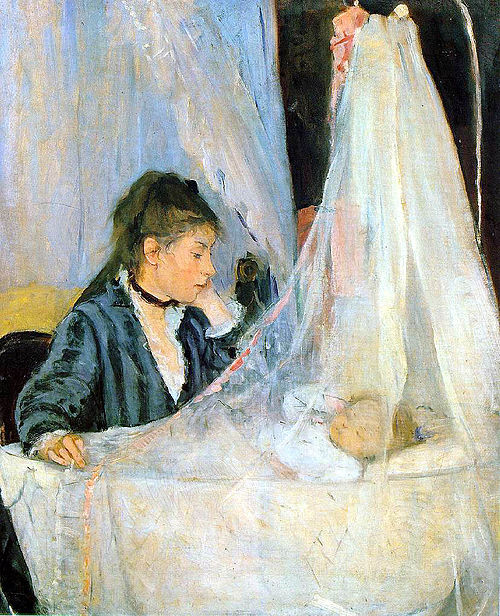Abstractnoun
An abridgement or summary of a longer publication.
Abstractnoun
Something that concentrates in itself the qualities of a larger item, or multiple items.
Abstractnoun
Concentrated essence of a product.
Abstractnoun
(medicine) A powdered solid extract of a medicinal substance mixed with lactose.
Abstractnoun
An abstraction; an abstract term; that which is abstract.
Abstractnoun
The theoretical way of looking at things; something that exists only in idealized form.
Abstractnoun
(arts) An abstract work of art.
Abstractnoun
(real estate) A summary title of the key points detailing a tract of land, for ownership; abstract of title.
Abstractadjective
(obsolete) Derived; extracted.
Abstractadjective
Drawn away; removed from; apart from; separate.
Abstractadjective
Expressing a property or attribute separately of an object that is considered to be inherent to that object.
Abstractadjective
Considered apart from any application to a particular object; not concrete; ideal; non-specific; general, as opposed to specific.
Abstractadjective
Difficult to understand; abstruse; hard to conceptualize.
Abstractadjective
(archaic) Absent-minded.
Abstractadjective
(arts) Pertaining to the formal aspect of art, such as the lines, colors, shapes, and the relationships among them.
Abstractadjective
Free from representational qualities, in particular the non-representational styles of the 20th century.
Abstractadjective
(music) Absolute.
Abstractadjective
(dance) Lacking a story.
Abstractadjective
Insufficiently factual.
Abstractadjective
Apart from practice or reality; vague; theoretical; impersonal; not applied.
Abstractadjective
(grammar) As a noun, denoting an intangible as opposed to an object, place, or person.
Abstractadjective
(computing) Of a class in object-oriented programming, being a partial basis for subclasses rather than a complete template for objects.
Abstractverb
(transitive) To separate; to disengage.
Abstractverb
(transitive) To remove; to take away; withdraw.
Abstractverb
To steal; to take away; to remove without permission.
Abstractverb
(transitive) To summarize; to abridge; to epitomize.
Abstractverb
To extract by means of distillation.
Abstractverb
(transitive) To consider abstractly; to contemplate separately or by itself; to consider theoretically; to look at as a general quality.
Abstractverb
To withdraw oneself; to retire.
Abstractverb
(transitive) To draw off (interest or attention).
Abstractverb
To perform the process of abstraction.
Abstractverb
To create abstractions.
Abstractverb
To produce an abstraction, usually by refactoring existing code. Generally used with "out".
Abstractadjective
Withdraw; separate.
Abstractadjective
Considered apart from any application to a particular object; separated from matter; existing in the mind only; as, abstract truth, abstract numbers. Hence: ideal; abstruse; difficult.
Abstractadjective
Expressing a particular property of an object viewed apart from the other properties which constitute it; - opposed to concrete; as, honesty is an abstract word.
Abstractadjective
Abstracted; absent in mind.
Abstractverb
To withdraw; to separate; to take away.
Abstractverb
To draw off in respect to interest or attention; as, his was wholly abstracted by other objects.
Abstractverb
To separate, as ideas, by the operation of the mind; to consider by itself; to contemplate separately, as a quality or attribute.
Abstractverb
To epitomize; to abridge.
Abstractverb
To take secretly or dishonestly; to purloin; as, to abstract goods from a parcel, or money from a till.
Abstractverb
To separate, as the more volatile or soluble parts of a substance, by distillation or other chemical processes. In this sense extract is now more generally used.
Abstractverb
To perform the process of abstraction.
Abstractnoun
That which comprises or concentrates in itself the essential qualities of a larger thing or of several things. Specifically: A summary or an epitome, as of a treatise or book, or of a statement; a brief.
Abstractnoun
A state of separation from other things; as, to consider a subject in the abstract, or apart from other associated things.
Abstractnoun
An abstract term.
Abstractnoun
A powdered solid extract of a vegetable substance mixed with sugar of milk in such proportion that one part of the abstract represents two parts of the original substance.
Abstractnoun
a concept or idea not associated with any specific instance;
Abstractnoun
a sketchy summary of the main points of an argument or theory
Abstractverb
consider a concept without thinking of a specific example; consider abstractly or theoretically
Abstractverb
make off with belongings of others
Abstractverb
consider apart from a particular case or instance;
Abstractverb
give an abstract (of)
Abstractadjective
existing only in the mind; separated from embodiment;
Abstractadjective
not representing or imitating external reality or the objects of nature;
Abstractadjective
based on specialized theory;
Abstractadjective
dealing with a subject in the abstract without practical purpose or intention;
Impressionismnoun
(arts) a movement in art characterized by visible brush strokes, ordinary subject matters, and an emphasis on light and its changing qualities
Impressionismnoun
(music genre) a style that avoided traditional harmony, and sought to invoke the impressions of the composer
Impressionismnoun
(poetry) a style that used imagery and symbolism to portray the poet's impressions
Impressionismnoun
The theory or method of suggesting an effect or impression without elaboration of the details; - a disignation of a recent fashion in painting and etching.
Impressionismnoun
a school of late 19th century French painters who pictured appearances by strokes of unmixed colors to give the impression of reflected light
Impressionism
Impressionism is a 19th-century art movement characterized by relatively small, thin, yet visible brush strokes, open composition, emphasis on accurate depiction of light in its changing qualities (often accentuating the effects of the passage of time), ordinary subject matter, inclusion of movement as a crucial element of human perception and experience, and unusual visual angles. Impressionism originated with a group of Paris-based artists whose independent exhibitions brought them to prominence during the 1870s and 1880s.































